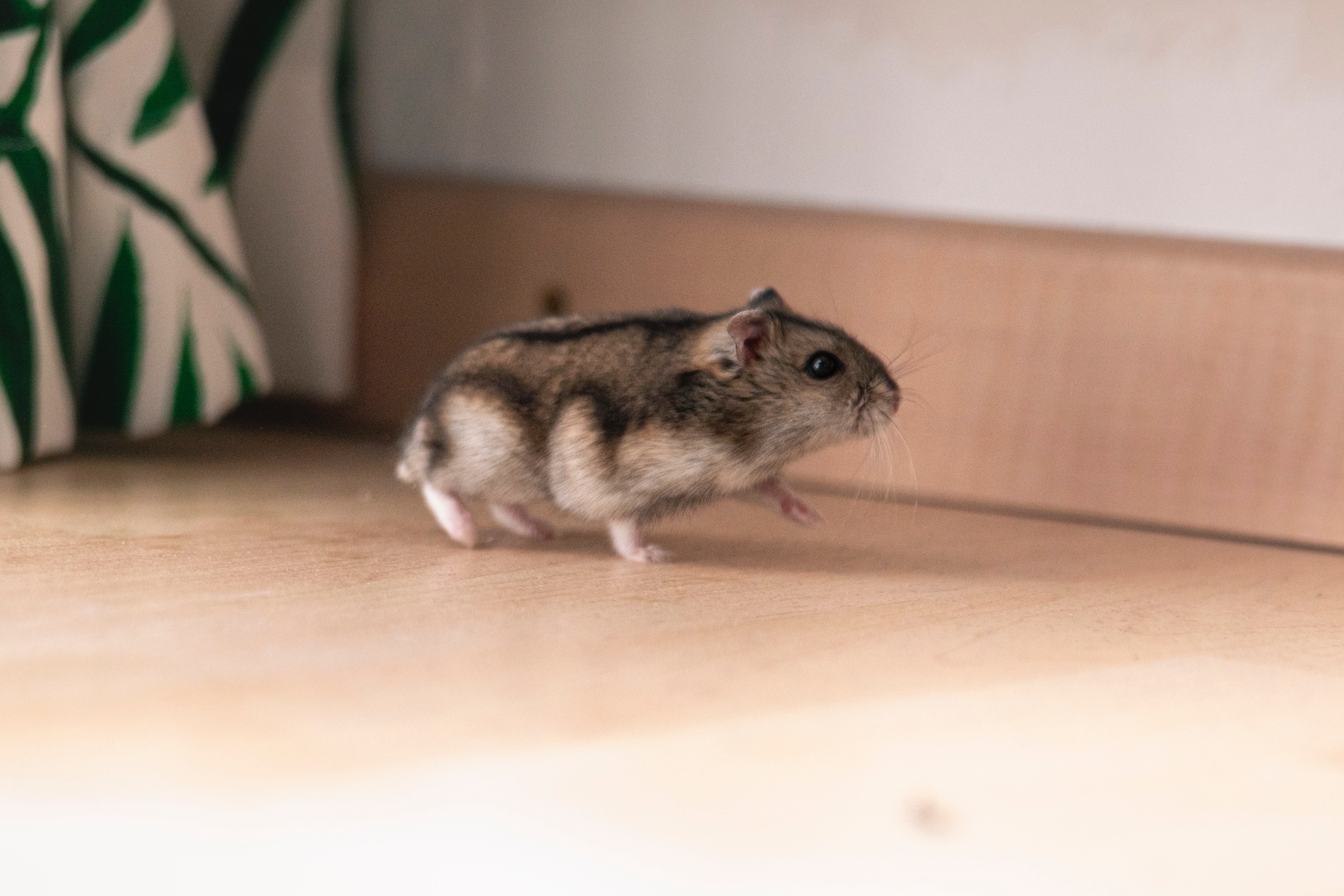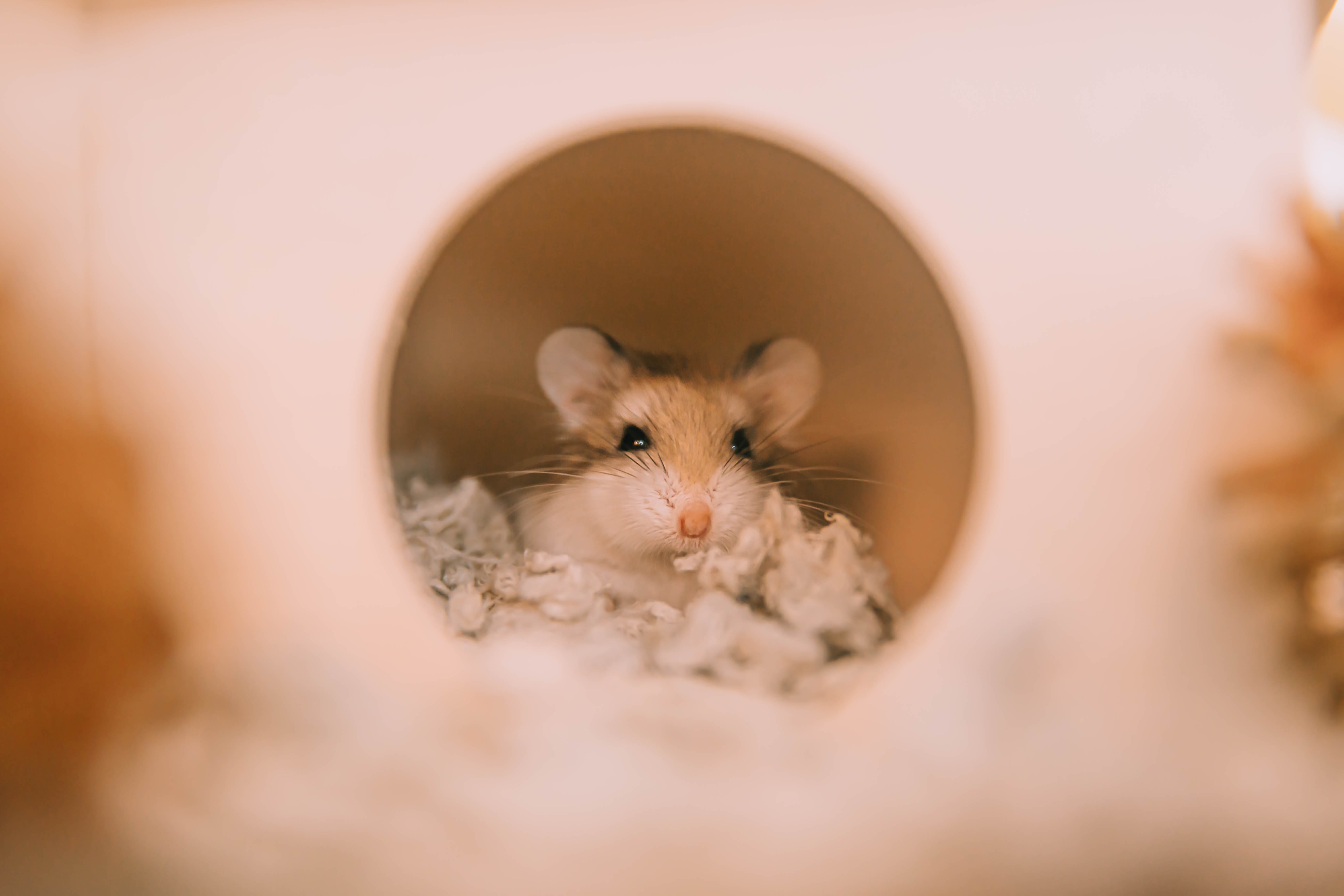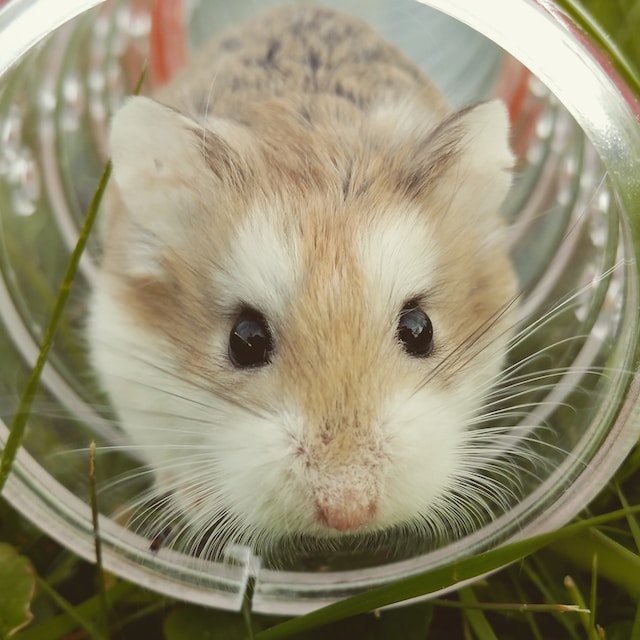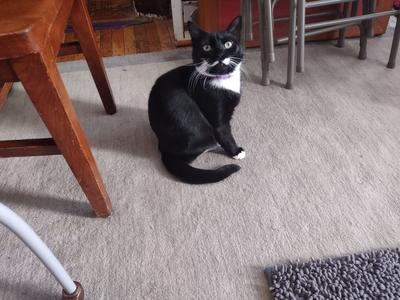- Home
- Best Pet for Me
- Taking Care of a Hamster
All You Need to Know About Taking Care of a Hamster: Essential Tips and Guidelines
 Photo by Frenjamin Benklin https://unsplash.com/photos/hamster-on-wooden-surface-6yKTcxJhbQ8
Photo by Frenjamin Benklin https://unsplash.com/photos/hamster-on-wooden-surface-6yKTcxJhbQ8Taking care of a hamster is easy! They are adorable and don’t need a lot of work. They like to stuff their little cheeks with food, which can actually double the size of their head when they cram it in there. You can get cages for them with lots of mazaes and watch them run around and explore. They are great pets for someone living in a small apartment.
Choosing the Right Cage for Your Hamster: Size, Ventilation, and Climbing Space
They should be kept in a wire cage and the minimum dimensions for a hamster cage are 24 inches by 12 inches, and at least 12 inches tall. A fish tank is not a good enclosure for a hamster. There’s not enough ventilation, it can get hot in a glass enclosure. Hamsters need ventilation but should be kept away from drafts. A multilevel cage is great, so they can climb around and have lots of space. I also love the Habitrail cages. There are clear plastic cages and you can attach tubes to them so there are tons of paths the hamster can run around in all the time.
Best Bedding for Your Hamster: Safe, Comfortable Options and What to Avoid
 Photo by Sunira Moses https://unsplash.com/photos/a-small-rodent-peeking-out-of-a-hole-in-a-house-aXK_a0xxmW0
Photo by Sunira Moses https://unsplash.com/photos/a-small-rodent-peeking-out-of-a-hole-in-a-house-aXK_a0xxmW0As far as bedding goes, Timothy hay, orchard grass, brome hay, botanical hay, and oat hay are all great options. Other good choices are hemp shaving aspen shavings and paper shavings. Hamsters like to burrow, so you want a thick base of bedding and the bedding should also hold its shape when the hamster makes tunnels. Poor choices for bedding include pine and cedar because they might have sharp splinters and anything that is scented. Fluffy bedding could also be hard on your hamster’s health, especially if they chew on it.
Feeding Your Hamster: The Best Practices for Diet and Hydration
Feed your hamster from a dish to prevent them from munching on their bedding. Offer them a high-quality hamster mix, and treat them to fresh vegetables now and then for variety. For hydration, they can sip from a water bottle or a shallow dish—whichever suits their preference!
Creating the Perfect Habitat for Your Hamster: Solo Living, Handling Tips, and Fun Activities
 Photo by Silje Roseneng. https://unsplash.com/photos/closeup-photo-of-brown-hamster-in-glass-cup-cMp84C0fPSg
Photo by Silje Roseneng. https://unsplash.com/photos/closeup-photo-of-brown-hamster-in-glass-cup-cMp84C0fPSgHamsters like to live alone, so be careful if you want to have more than one. It’s nice to pay attention to them every day and handle them gently so they are used to it, but they will do fine as long as they have food and water, and are kept in a clean and entertaining cage. Hamsters tend to sleep during the day and are active at night, so they may make a lot of noise if they are in a bedroom. They are also escape artists. Keep their cage secure.
Some don’t mind being held, as long as you are confident while holding them. That means that most hamsters will not appreciate being handled by young kids, who can be jittery, uncoordinated, and may squeeze too hard. Like any animal, if you pay them attention frequently in a gentle way, they will get used to you and be more interactive
Make sure there are lots of chew toys and space to run around in. Their teeth will keep growing unless they chew on things to wear the teeth down. It’s really fun to watch them run on a hamster wheel! A hamster wheel is fun, but be sure that it is big enough for your hamster. If it is too small, it is hard on the hamster’s back. Hamster balls - a clear ball that you put the hamster in so they can run around the whole house safely - are actually not a good idea for hamsters. These animals use their whiskers to navigate and the ball takes away the use of their whiskers for this purpose and that is disorientating to them. They can also get their little feet stuck in the air holes.
Hamster Sizes: From Dwarf to Syrian – What You Need to Know About Their Growth and Features
Adult hamsters typically measure around 5 inches long and weigh between 3 to 5 ounces. Dwarf hamsters are even smaller, while Syrian hamsters can grow to about 6 to 8 ounces. And unlike some small animals, hamsters don't have tails!
Hamster Lifespan, Health Risks, and Hygiene Tips: What You Should Know About Taking Care of a Hamster
They typically live about two years. It’s possible for hamsters to have salmonella and a disease called lymphocytic choriomeningitis that they can spread to humans. Be sure to wash your hands after interacting with hamsters and keep their health checks with the vet. Hamsters don’t need to be groomed or washed by their humans - they can take care of that chore themselves






New! Comments
Have your say about what you just read! Leave me a comment in the box below.